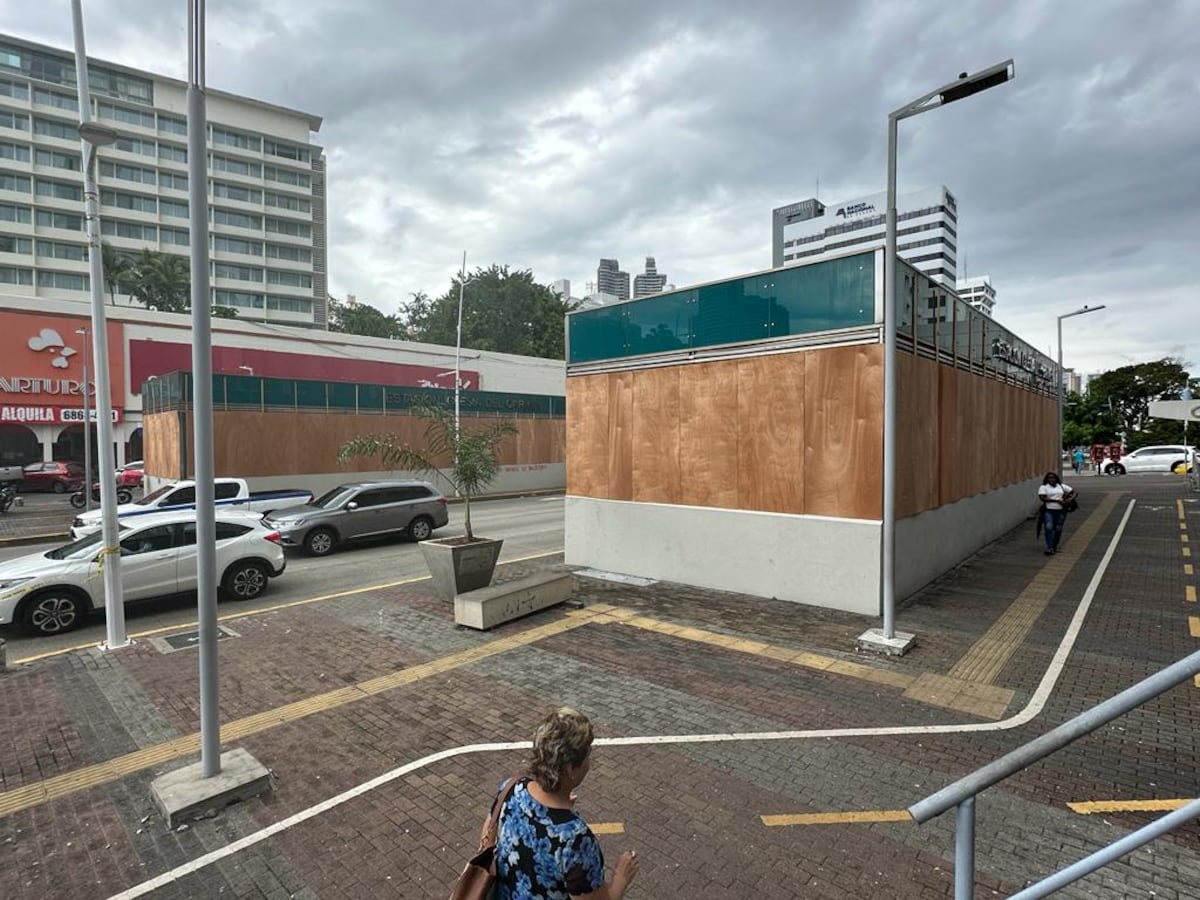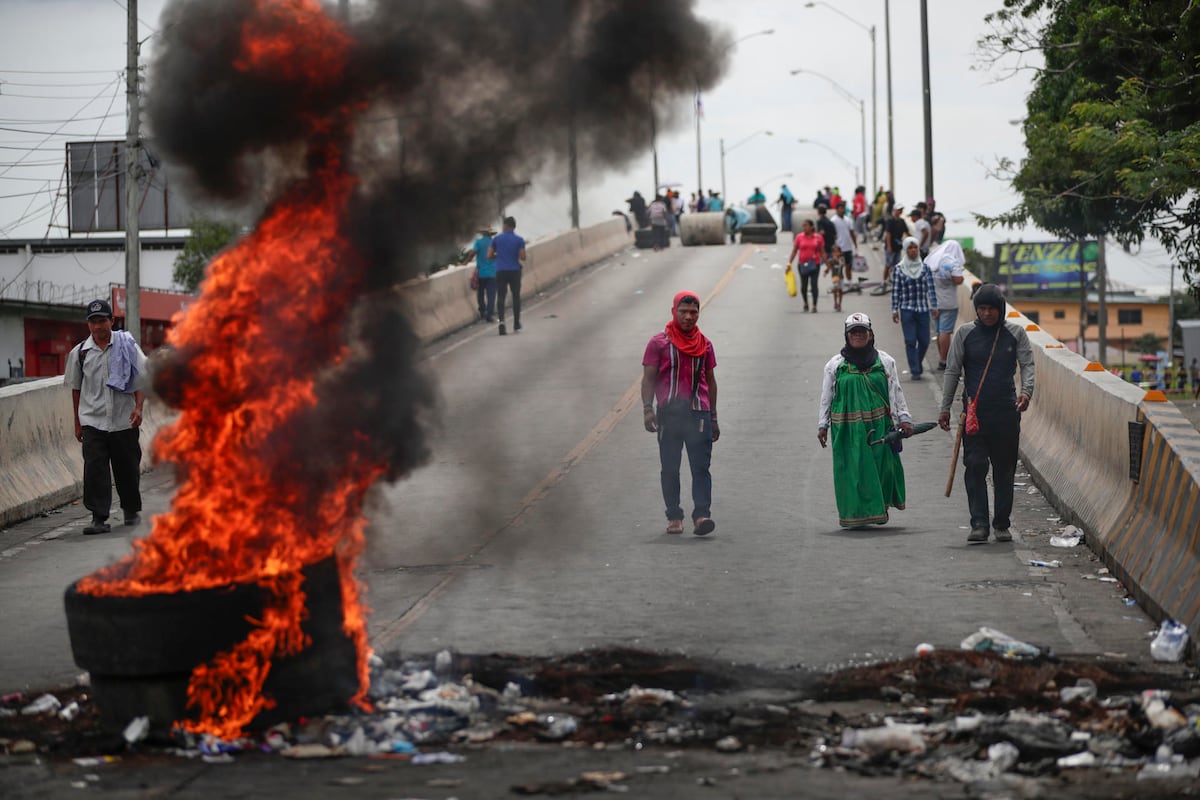Panama City, Nov 9 (EFE). -The questioned renewal of the mining contract with a subsidiary of a Canadian company has plunged Panama into a wave of protests that have claimed the lives of at least four people, in addition to millions of dollars in losses due to the closure of roads in the country.
Here are five keys to the socioeconomic impact of these demonstrations against the contract withMinera Panamá, a subsidiary of the Canadian firm First Quantum Minerals (FQM):
1. The largest protests in recent decades
The approval of the controversial contract on Oct. 20, after just three days of debate, unleashed a wave of protests, the largest the country has seen in recent decades, led by environmentalists, students and unions.
The situation forced the authorities to look for a way out of the crisis by approving a moratorium on new mining concessions and freezes those that are in the process of being approved, which was one of the protesters´s demands. The government also cited that fact that the Supreme Court was revieing th contract with FQM to determine whether or not it violated the constitution.
Despite these measures, the protests continued, causing increased tensions between the demonstrators and the general public. It resulted in the shooting death of two protesters by a frustrated motorist at a roadblock, bringing the number of deaths to four in the 18 days since the protests began.
2. The Pan-American Highway blocked
The protests against the controversial contract have resulted in constant blockages of the Pan-American Highway, the country´s main highway connecting it with the rest of Central America.
These blockades have resulted in shortages of basic products in some urban centers, such as Panama City, where prices have skyrocketed due to the shortage of products. The government, together with security forces, has created a logistics corridor by air and sea to transport medical supplies, fuel, gas and food.
Currently, the strongest blockades are in the province of Chiriquí, which borders Costa Rica and is the home of the country’s primary agricultural area. It was reported that some 900 trucks remain stranded on the highway.
Given the fact that there have been isolated cases of vandalism and looting, businesses, banks, shopping centers and the hospitality sector have had to board up their businesses to deter would-be thieves.
3. A blow to the economy
The business associations of Panama estimate losses of up to $90 million a day due to the situation that the Central American country is going through.
The tourism sector has been one of the hardest hit, with $200 million in losses after more than 68,000 tourists canceled trips to the country through January, including participants in conventions. The hotel association has estimated losses for that sector alone at $13 million. The economic blow of the protests has been picked up by risk rating agencies such as Standard & Poor (S&P), which downgraded the outlook from “stable” to “negative” due to the “risk of potential damage to investor confidence and future private investments”.
On Oct. 31, Moody´s estimated that, for the country to reach its deficit objective of 3% of GDP in 2023, it would need to receive some $770 million (0.9% of GDP) from the contract with Minera Panama. Authorities projected that this contract would also “provide royalties of $375 million (0.4% of GDP) annually in the coming years”.

4. A complete rejection of mining activity
The protesters not only rejected the new contract, but all mining activity, maintaining that the large economic contributions do not compensate for the environmental damage to Panama, where forests cover 68% of the country.
However, the rejection of mining has also brought to the fore the economic relevance of FQM´s exploitation of the largest open pit copper mine in Central America.
The Mining Chamber of Panama defended this activity and the renewal of the contract, due to the great economic benefits it would entail. According to official data, mining contributed 13.2% to GDP from 2017 to 2022.
Since Minera Panamá began production in 2019, the mining sector has represented around 80% of the country´s total exports.
In Panama there are at least a dozen mining projects with “enormous potential in mineral depo sits,mainly of gold and coppe,” according to the mining union, which says that the country “is characte rizedby having abundant mineral resources due to its geological location.”
5. The Supreme Court of Justice, before the final decision
The Supreme Court of Justice of Panama has the future of the new contract in its hands, after the legislature failed overturn it.
The country´s highest judicial body has admitted almost a dozen unconstitutionality claims against that pact, as it did with the previous one in 2017.
Environmentalists and jurists allege that the ruling of unconstitutionality on this contract would put the Panamanian state in a more advantageous situation in the face of possible international arbitration by the mining company for breach of contract.
The economic consequences, according to the mining union, of reaching international arbitration with the Canadian multinational would be over $50 billion dollars, taking into consideration the investment of $10 billion.
It also states that there will be additional negative impacts due to the eventual loss of investment grade, a drop in Panamanian bonds and the deterioration of public finances.
El texto original de EFE fue traducido al idioma inglés por Scott Bronstein.







